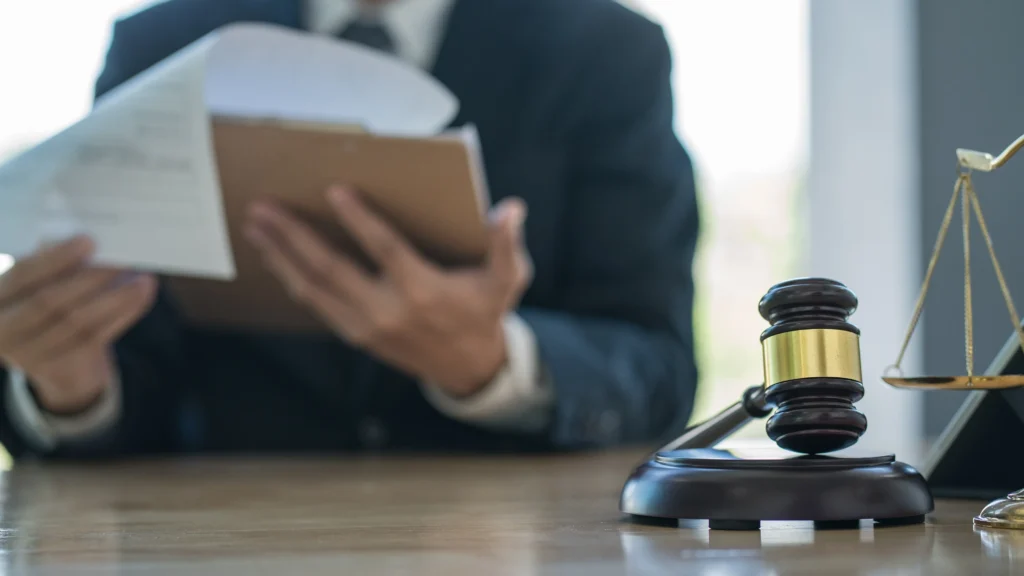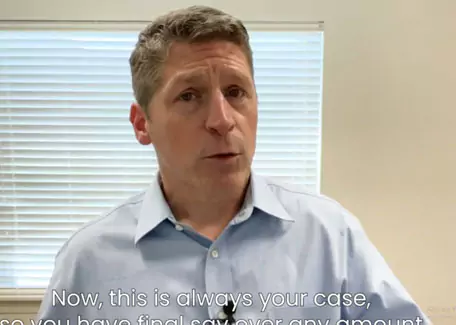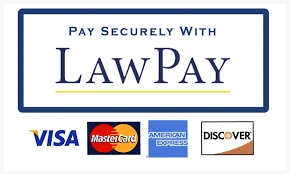What Should I Know About Motorcycle Accident Liability?
 Dealing with the aftermath of a motorcycle accident can be daunting, especially when figuring out liability. Motorcycle accident liability means determining who is legally responsible for the damages and injuries from the crash. For example, if a car driver doesn’t yield at an intersection and crashes into a motorcyclist, that driver might be liable for the accident. Identifying who is at fault is essential because it decides who covers the medical expenses, property damage, and other costs.
Dealing with the aftermath of a motorcycle accident can be daunting, especially when figuring out liability. Motorcycle accident liability means determining who is legally responsible for the damages and injuries from the crash. For example, if a car driver doesn’t yield at an intersection and crashes into a motorcyclist, that driver might be liable for the accident. Identifying who is at fault is essential because it decides who covers the medical expenses, property damage, and other costs.
At Big River Trial Attorneys, we recognize that every motorcycle accident case is unique and needs personalized care. Our skilled motorcycle accident lawyers are dedicated to helping you understand your rights and options. We offer free consultations to guide you through your case’s complexities and help you seek the compensation you deserve. Don’t face this difficult time alone—call us today at 225-725-6000 to learn how we can help you.
Common Causes of Motorcycle Accidents
Motorcycle accidents are often the result of multiple factors rather than a single cause. Knowing these common causes helps in establishing liability and preventing future incidents.
- Distracted Driving: Drivers using smartphones, eating, or engaging in other distractions can easily overlook motorcycle riders, leading to collisions.
- Intoxicated Driving: Alcohol or drug impairment affects judgment and reaction times, making it a significant risk factor in motorcycle crashes.
- Failure to Yield: Drivers failing to yield the right of way, especially at intersections, can cause serious accidents involving motorcycles.
- Poor Road Conditions: Hazards such as potholes, debris, and uneven surfaces can be particularly dangerous for motorcyclists.
- Speeding: Excessive speed reduces reaction time and increases the severity of injuries in the event of a crash.
- Left-Turn Accidents: These occur when drivers make left turns without adequately checking for oncoming motorcycles, often at intersections.
- Lane-Splitting: While controversial, lane-splitting can lead to accidents if drivers are not vigilant about motorcycles passing between lanes.
- Aggressive Driving: Tailgating, abrupt lane changes, and road rage can create hazardous conditions for motorcyclists.
- Inexperienced Riders: Lack of experience or improper training can lead to errors in judgment and increased accident risk.
- Mechanical Failures: Faulty brakes, tire blowouts, or other mechanical issues can lead to loss of control and crashes.
Understanding these common causes is crucial for identifying liable parties and implementing preventive measures to enhance motorcycle safety. At Big River Trial Attorneys, we are committed to helping you navigate these complexities. Our experienced motorcycle accident lawyers work diligently to determine fault and hold the responsible parties accountable, ensuring you receive the compensation you deserve.
Steps to Take After a Motorcycle Accident
 Taking the right steps right after a motorcycle accident is vital for protecting your health and legal rights.
Taking the right steps right after a motorcycle accident is vital for protecting your health and legal rights.
- Ensure Safety First: Move to a safe location away from traffic if possible. Turn on hazard lights to alert other drivers.
- Call Emergency Services: Dial 911 to report the accident and request medical assistance for anyone injured. Police presence is important for documenting the incident.
- Assess Injuries: Check yourself and others involved for injuries. Even if injuries seem minor, seeking medical attention is essential for proper documentation.
- Exchange Information: Collect names, contact details, insurance information, and vehicle details from all drivers involved.
- Document the Scene: Take photos and videos of the accident scene, vehicle damage, road conditions, and any visible injuries.
- Gather Witness Information: Obtain contact information from any witnesses who saw the accident. Their accounts can be valuable later.
- Avoid Admitting Fault: Refrain from making statements about fault or apologizing, as these can be used against you in legal proceedings.
- Seek Medical Attention: Visit a healthcare provider promptly, even if you feel fine, to identify any hidden injuries and document them for your case.
- Notify Your Insurance Company: Report the accident to your insurance company but stick to the facts and avoid speculation.
- Keep Records: Maintain a file with all documents related to the accident, including medical bills, repair estimates, and correspondence with insurance companies.
- Consult a Motorcycle Accident Attorney: Contact a motorcycle accident lawyer to discuss your rights and options. They can guide you through the legal process and help secure fair compensation.
By following these steps, you can protect your interests and lay a strong foundation for any subsequent legal action. At Big River Trial Attorneys, our skilled motorcycle accident lawyers are ready to assist you every step of the way.
Should I Notify the At-Fault Party’s Insurance Company?
After a motorcycle accident, it’s critical to know the role of the at-fault party’s insurance company in the claims process. While you should inform your own insurance company about the accident, it’s usually best not to contact the at-fault party’s insurer directly without first talking to a motorcycle accident attorney.
An attorney can guide you in handling communications with insurance companies, ensuring your rights are protected and you don’t accidentally say something that could harm your claim. Insurance companies often aim to minimize payouts, so having legal representation is vital for obtaining fair compensation for your injuries and damages.
If the at-fault party’s insurance company contacts you, it’s wise to direct them to your attorney. This approach ensures clear and consistent communication, allowing your attorney to manage negotiations and advocate for you effectively.
Key Factors in Determining Motorcycle Accident Liability
 Determining liability in a motorcycle accident case relies on a few key elements of negligence: duty of care, breach of duty, causation, and damages. Understanding these elements is crucial for building a strong case and pursuing fair compensation.
Determining liability in a motorcycle accident case relies on a few key elements of negligence: duty of care, breach of duty, causation, and damages. Understanding these elements is crucial for building a strong case and pursuing fair compensation.
In most motorcycle accident cases, negligence is demonstrated by proving that the defendant had a duty of care, failed to uphold it, and directly caused the victim’s injuries.
Duty of Care in Motorcycle Accidents
The duty of care in motorcycle accidents means that everyone on the road must drive safely and follow traffic laws. This includes car drivers, motorcyclists, employers, and even government bodies. For example, drivers should watch out for motorcyclists and take safety measures, like wearing a helmet.
If someone doesn’t follow this duty of care, it can lead to serious motorcycle accident injuries and legal issues.
Breach of Duty in Motorcycle Accidents
A breach of duty in motorcycle accidents happens when someone doesn’t act as a careful person would in the same situation. For example, car drivers might follow too closely, ignore blind spots, or get distracted while driving. Similarly, motorcyclists might breach their duty by speeding or not using signals. Such careless actions often lead to serious accidents and injuries.
Causation and Damages
Causation is the connection between the breach of duty and the injuries suffered in a motorcycle accident. It needs to be proven that the accident directly caused injuries like broken bones or concussions. Victims can seek compensation for damages such as medical expenses, lost income, and pain and suffering. Proving causation and damages is crucial for a successful motorcycle accident claim.
How Does Lane Splitting Factor Into Determining Liability?
Lane splitting is when a motorcyclist rides between lanes of slow or stopped traffic. In Louisiana, this practice is illegal, which greatly impacts who is at fault in a motorcycle accident case. If an accident happens while a rider is lane splitting, the motorcyclist might be found partly or fully responsible because they’re breaking state traffic laws.
However, the behavior of other drivers involved in the accident is also important. If another driver was careless or reckless, they might share the blame even though lane splitting is illegal. For example, if a car driver was distracted or didn’t signal a lane change, they might still be partly responsible for the accident.
Because these situations can be complicated, it’s important to talk to a motorcycle accident attorney who knows Louisiana law. An attorney can help you understand the legal details and work to get you fair compensation, even if lane splitting was involved in the accident.
Potentially Liable Parties in Motorcycle Accidents
Determining liability in motorcycle accidents isn’t limited to the drivers involved. Identifying all responsible parties is essential for obtaining fair compensation for injuries and damages.
- Drivers: Often, the most obvious liable party is the driver of another vehicle involved in the accident. Negligent actions such as distracted driving, failure to yield, or speeding can lead to liability.
- Motorcycle Riders: In some cases, the motorcycle rider themselves may share responsibility if they were engaging in risky behaviors like speeding or lane-splitting without caution.
- Government Entities: Poorly maintained roads or lack of proper signage can lead to accidents. If a government entity fails to address known road hazards, they may be liable for resulting accidents.
- Motorcycle Manufacturers: Defective motorcycle parts or design flaws can lead to accidents. In such cases, manufacturers might be held accountable through product liability claims.
- Employers: If a motorcycle accident occurs during work-related activities, the employer might be liable, especially if negligence in training or vehicle maintenance is involved.
- Construction Companies: Companies responsible for road construction or maintenance might be liable if their work creates hazardous conditions without proper warnings.
- Pedestrians: In rare cases, a pedestrian’s actions, such as jaywalking or causing a distraction, could contribute to a motorcycle accident.
- Passenger Vehicles: Other vehicles on the road, including cars, trucks, and buses, can be liable if their drivers’ actions lead to a collision with a motorcycle.
- Insurance Companies: While not directly liable for causing accidents, insurance companies play a significant role in the compensation process and can be challenged if they act in bad faith.
- Parts Suppliers: If a defective part contributed to the accident, the supplier of that part might also bear some responsibility.
Knowing who might be responsible in a motorcycle accident is critical for seeking compensation. At Big River Trial Attorneys, our skilled motorcycle accident lawyers can help you identify all liable parties and hold them accountable. We are dedicated to guiding you through the process of determining liability and pursuing the compensation you deserve.
Evidence Needed to Prove Liability in Motorcycle Accidents
Proving liability in motorcycle accident cases requires collecting strong evidence. This evidence is crucial for showing who is at fault and the level of damages incurred.
- Police Reports: These reports provide an official account of the motorcycle accident, detailing the involved parties and observations. They serve as an unbiased source of information.
- Witness Statements: Eyewitness accounts offer an impartial perspective on the incident, supporting the victim’s version of events and strengthening the claim.
- Accident Scene Evidence: Photos and videos taken immediately after the accident can capture the conditions and events leading to the crash. This visual evidence is vital for proving negligence.
- Traffic Camera Footage: If available, footage from nearby traffic cameras can provide an objective view of the accident and help establish the sequence of events.
- Medical Records: Documentation of injuries and medical treatment is essential for demonstrating the impact of the accident on the victim’s health and justifying compensation for medical expenses.
- Expert Testimony: Testimony from accident reconstruction experts or medical professionals can provide insights into the cause of the accident and the extent of injuries.
- Vehicle Damage Reports: Assessments of the damage to the motorcycle and other involved vehicles can help determine the force of impact and support claims of liability.
- Communication Records: Any communication with the insurance company or involved parties, such as emails or phone call logs, can be used to corroborate claims and negotiations.
- Weather and Road Condition Reports: Information on weather conditions and road maintenance records at the time of the accident can help establish external factors that may have contributed to the crash.
- Personal Accounts: Detailed personal accounts from the motorcycle accident victim can provide a firsthand perspective of the incident and its aftermath.
Gathering and organizing evidence is essential for building a strong motorcycle accident case. At Big River Trial Attorneys, we help clients collect and present the necessary evidence to ensure a thorough and effective legal strategy.
Comparative Negligence in Motorcycle Accidents
Comparative negligence is an important concept in motorcycle accident cases. It means that fault is divided among all parties involved in an accident. This division of responsibility affects how much compensation a motorcycle accident victim can receive. If a motorcyclist is partly at fault, their compensation will be reduced by their percentage of fault. Understanding this is critical for anyone seeking compensation after an accident.
In Louisiana, the principle of comparative negligence applies to motorcycle accident cases. This means that even if you are partially at fault for the accident, you may still be able to seek compensation. However, your compensation will be reduced by your percentage of fault. For example, if you are found to be 20% at fault for the accident, your compensation will be reduced by 20%.
To make the most of comparative negligence, collecting strong evidence is key. A motorcycle accident lawyer can help determine fault accurately, negotiate with insurance companies, and advocate for the victim’s rights, ensuring they receive the compensation they deserve, even if they are partially at fault.
Potential Compensation
When involved in a motorcycle accident, it’s helpful to understand the types of compensation you might be entitled to. Potential compensation can cover a range of damages, including medical expenses, lost wages, and property damage.
Victims may also seek compensation for non-economic damages such as pain and suffering, emotional distress, and loss of enjoyment of life. A seasoned motorcycle accident attorney can help evaluate your case and ensure you pursue all possible avenues for compensation. By understanding the potential compensation available, you can better prepare for the financial recovery process following a motorcycle accident.
How Big River Trial Attorneys Can Help You
 At Big River Trial Attorneys, we are dedicated to helping each motorcycle accident victim we represent. Our firm is known for giving personalized attention and care to every client. With over 17 years of experience in motorcycle accident cases, our skilled attorneys are ready to handle the complexities of personal injury claims and aim for the best outcomes.
At Big River Trial Attorneys, we are dedicated to helping each motorcycle accident victim we represent. Our firm is known for giving personalized attention and care to every client. With over 17 years of experience in motorcycle accident cases, our skilled attorneys are ready to handle the complexities of personal injury claims and aim for the best outcomes.
We set ourselves apart by maintaining open communication and transparency throughout the legal process. We keep our clients informed and involved, giving them confidence and peace of mind during tough times. Our deep understanding of motorcycle accident law and our commitment to justice make us an excellent choice for those seeking fair compensation for their injuries and damages.
Don’t handle the aftermath of a motorcycle accident alone. Contact Big River Trial Attorneys today for a free consultation. Let us help you take the first step towards recovery. Call us at 225-725-6000 to see how our team can assist you.



